Something remarkable happened in Venezuela on July 28: Opposition candidate Edmundo González beat socialist dictator Nicolás Maduro in the presidential election. In a country that has for a quarter century become submerged in an increasingly totalitarian regime—where the ruling socialist party has total media control, bribes and forces welfare recipients to vote for it, and which even barred almost all Venezuelans abroad from voting—González received nearly 70 percent of the vote.
Obviously, Maduro didn’t recognize his loss. Instead, his regime made up a fake result. But Venezuelans proved they are desperate for change—and unafraid of their rulers. The question that remains is how to remove Maduro from power.
Venezuela is an extraordinary country in many ways. It is blessed with the largest proven oil reserves on the planet and boasts some of the most wonderful natural marvels, including the world’s tallest waterfall and the only permanent lightning. After the Second World War, Venezuela became a beacon of freedom, welcoming Europeans fleeing the war-torn continent, my grandparents among them. When it became democratic in 1958, Venezuela welcomed people persecuted by dictatorships in Cuba, Argentina, Chile, Brazil, and Syria, as well as those fleeing conflict caused by communist guerrillas in Colombia and civil war in Lebanon. Over the second half of the 20th century, it became a free and rich country.
But Venezuela also democratically chose to destroy itself when, in December 1998, enough people voted for Hugo Chavez. Chavez would go on to illegally reform the constitution, enact a socialist agenda of nationalization, institute price controls, and expand government spending paid for by printed money leading to hyperinflation. He also curtailed the freedom of speech, press, and assembly.
Ultimately, the government’s policies sank the economy. Venezuela’s economy is now 75 percent smaller than at its peak in 2012. A quarter of the population—8 million people—have fled the country, marking the largest peace-time refugee crisis in history. Unsurprisingly, this created widespread opposition to those in power. Chavez in turn purged the military and other institutions, began cheating in the elections, and transformed the government into a drug cartel to pay off allies—which Maduro then inherited in 2013 when Chavez died.
One rigged election after another, the opposition took to the streets to demand a restoration of the Venezuela of our parents’ generation. But every time, the regime sent the military, police, and even armed paramilitary groups to arrest, torture, and even kill teenagers and college students who made up most of the rebels. The aftermath of last month’s rigged election was no exception: So far, at least 20 people have been murdered by Maduro’s forces, and more than 2,000 have been detained, all in just one week.
But, unlike past times, the opposition is now led by someone who doesn’t flinch. Maria Corina Machado became the opposition leader in a primary last October after earning a whopping 92 percent of the vote. Machado was always the hardliner, warning in the early years about Chavez’s election fraud before anyone else believed it. She was sidelined by the rest of the opposition’s leadership, both because of her unyielding approach and because she is a self-avowed classical liberal who supports free enterprise.
After years of failures by the parties of the Venezuelan democratic forces—who negotiated behind the people’s backs with the regime, betrayed the population, and even became involved in corruption scandals—Venezuelans were done with the opposition establishment. A quarter of a century of impoverishing socialism pushed them to overwhelmingly support Machado, the so-called Iron Lady of Venezuela, as their new leader. This is the best, and perhaps the last, chance in our lifetime.
As the July 28 election approached, many were hopeful that the difference would be so overwhelming against Maduro that the regime wouldn’t be able to cheat. I wasn’t so optimistic. Then, on election night after a day marred by irregularities and abuses, Maduro’s government announced a statistically impossible, made-up result, without any evidence.
But this time, the opposition was prepared to prove that the regime lost. Election precinct witnesses and chairs reported each of their results and scanned copies throughout election night. By the next morning, Machado—who was barred from running—announced her coalition had collected over 70 percent of the precinct reports and that González received over two-thirds of the vote. These results are now verifiable online, with over 81 percent of precincts now included.
Over the past several days, Venezuelans have taken to the streets to express their anger and demand the election results be recognized. While many were hopeful that the military wouldn’t repress the protests, as in previous times, the regime’s forces immediately fired at protesters and even sent intelligence agents to kidnap as many election witnesses as possible. Last week, Maduro announced on TV that he was creating two new “maximum security prisons” with the goal of “re-education” for the protesters while he showed a video of guards parading 75 detained Venezuelans forced to make a communist salute to the dictator. Maduro’s attorney general called for Machado’s arrest; she then wrote in the Wall Street Journal that she was in hiding to avoid capture and asked the international community to support freedom-loving Venezuelans. This past Saturday, she showed up at a rally she summoned in Caracas; Venezuelans now await instructions for next steps.
The international community’s response to these blatant human rights violations has been lackluster so far. The U.S. formally recognized González as the election’s winner last Thursday, but President Joe Biden also thanked Brazilian President Lula da Silva “for his leadership on Venezuela” right after the latter had recognized Venezuela’s election as “normal” and didn’t denounce any fraud. Worse, Biden lifted secondary sanctions on Venezuela’s oil sector, allowing foreign companies like Repsol and BP to export Venezuelan oil to Europe. The Biden administration had also granted Chevron a license to export Venezuelan oil to the U.S. until recently. Biden even released Maduro’s nephews from jail, as well as financier Alex Saab, a personal friend and ally of Maduro.
Some Latin American leftist governments have responded in an even worse way. Yes, Mexico, Colombia, and Brazil officially called on Maduro to release the election data (which he is likely in the process of faking) yet they blocked an effort at the Organization of American States to demand just that. In truth, the presidents of those three countries are intimately tied and supportive of Maduro’s regime. Most of the rest of the continent, led by Argentinian president Javier Milei, have recognized González as the winner and unambiguously support Venezuela’s freedom.
These are critical moments in Venezuela. Protest methods, such as a national strike, are now impossible because of the dire economic circumstances in which most people there live. Persecution over even social media posts is widespread. After this Saturday’s rally, more people have been detained and many Venezuelans have shown videos of policemen detaining them and checking their social media activity for anti-Maduro posts. Clearly, this regime won’t leave power through peaceful means.
But does Machado know that force might be necessary to topple Maduro? She did just call on the international community to support Venezuelans, but recognition alone won’t be enough as Juan Guaidó’s 2019 failed effort to set up an interim government proved. She is likely attempting to persuade rank-and-file military officers, but that’s a strategy that has failed every single time and underestimates the power of Cuban intelligence to identify and get rid of dissent within Venezuela’s military forces.
What comes next is uncertain, but developed nations—particularly the U.S.—should stand in solidarity with the Venezuelan people. After all, the Declaration of Independence affirms that when a people are oppressed by a despotic government, they have the right and duty “to throw off such government, and to provide new guards for their future security.” The United States itself achieved independence in part thanks to foreign support.
Above all, the world should help avoid mass bloodshed in Venezuela and stop Maduro from turning it into a police state like Cuba. Every nation should begin by recognizing the simple truth that Edmundo González was elected on July 28. Then, democratic governments should forbid financial transactions with the Maduro regime, including oil exports. And finally, the world should follow the U.S. lead in indicting Maduro and his allies on drug trafficking and terrorism charges.
The U.S. should indict even more Maduro cronies, as many as possible, under the case against the Cartel of the Suns—the network of drug trafficking within Venezuela’s military and government—and award monetary prizes for information and capture of everyone involved. These capture awards should be increased and extended to accomplices of persons of interest all over the world. Once enough crooks are arrested globally, the U.S. will have leverage to press Maduro and his allies to betray each other or leave power.
The path ahead will be difficult and perhaps unsuccessful, but it’s important to envision what a truly free Venezuela might look like. If Machado succeeds in overthrowing the despotic Maduro regime, Venezuela would become the 21st century’s first economic miracle. Like Western Europe after the Second World War, or Eastern Europe after the fall of the Iron Curtain, Venezuela’s economy would bounce back when economic and political freedom is restored. Machado’s plan to privatize state-owned companies would open countless investment opportunities for Venezuelans and foreigners alike, and oil and gas production would boom, reducing energy costs worldwide.
Most importantly, a free Venezuela would allow millions of children and adults who are malnourished and slowly dying due to lack of medicine to be fed and healed. The International Monetary Fund and the World Bank would release billions in much-needed funds to alleviate the crisis in the short term, and the American and European humanitarian aid would be finally allowed to save countless lives. Venezuelans would once again be able to start a business without fear, trade with each other and the world, and think and speak freely in our own country. All of this would stop the outflow of thousands of refugees per day and allow potentially millions of the 8 million Venezuelans abroad to return to our homeland.
The Venezuela that welcomed my grandparents in the 1950s and that my parents enjoyed for half of their lives wasn’t perfect. But it was our country. Meanwhile, the socialist Venezuela that began to take shape this century is no country at all, but a criminal organization that occupied our country. I fear that failure to overthrow Maduro now could mean the death of the Venezuelan nation and trigger a mass exodus. But I know that success would herald Venezuela’s rebirth as the beacon of freedom it is meant to be.
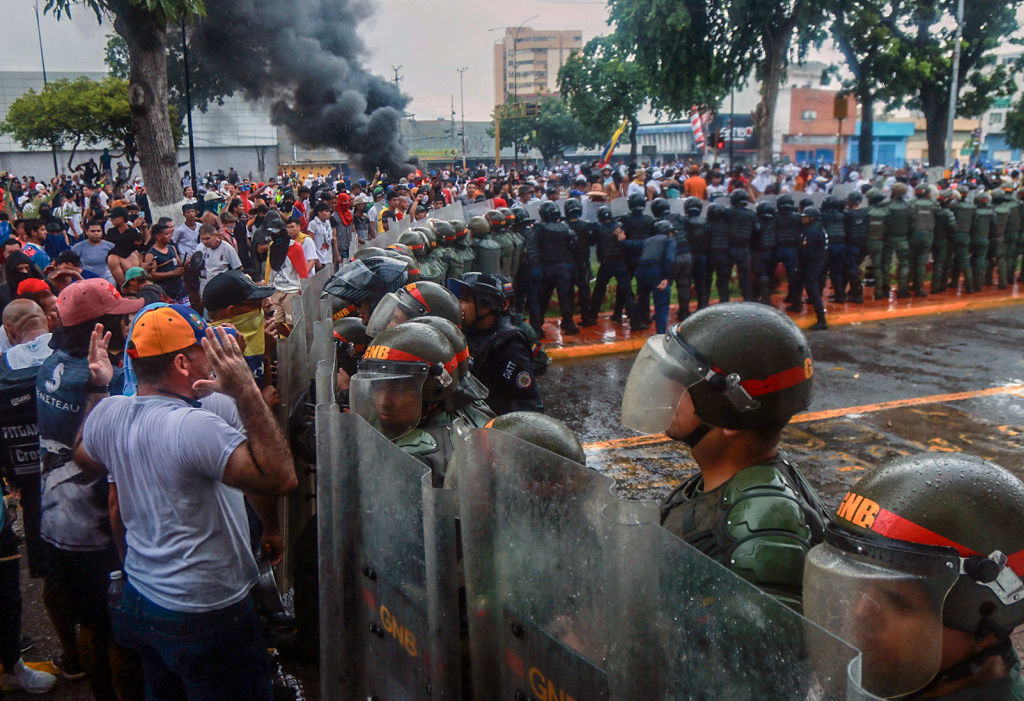
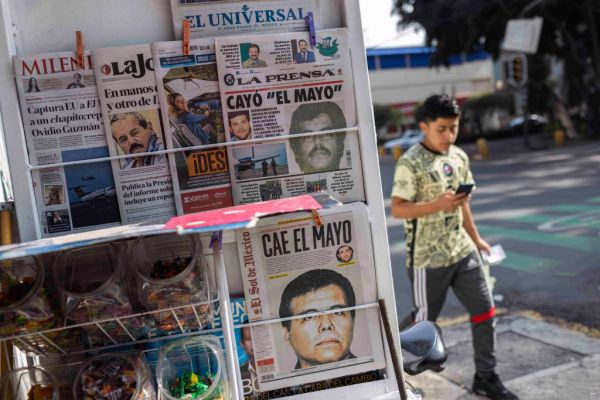
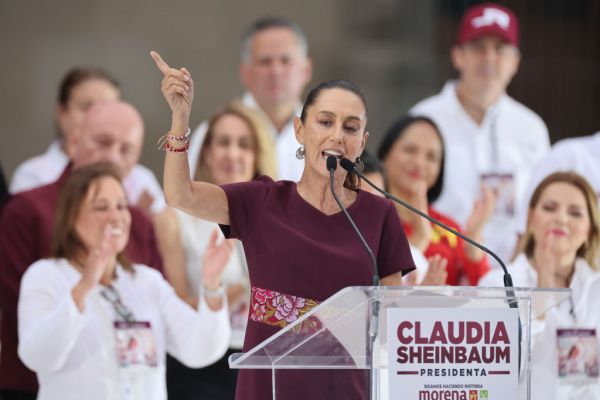
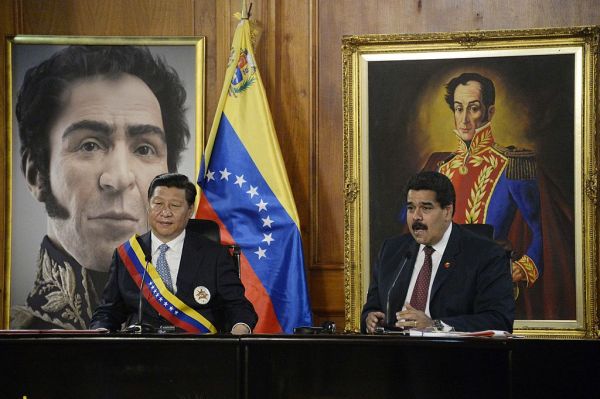

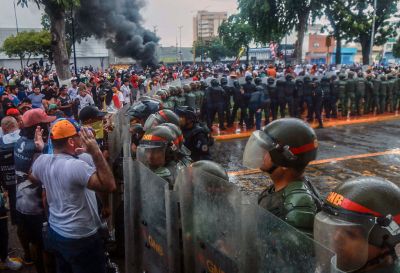
Please note that we at The Dispatch hold ourselves, our work, and our commenters to a higher standard than other places on the internet. We welcome comments that foster genuine debate or discussion—including comments critical of us or our work—but responses that include ad hominem attacks on fellow Dispatch members or are intended to stoke fear and anger may be moderated.
With your membership, you only have the ability to comment on The Morning Dispatch articles. Consider upgrading to join the conversation everywhere.